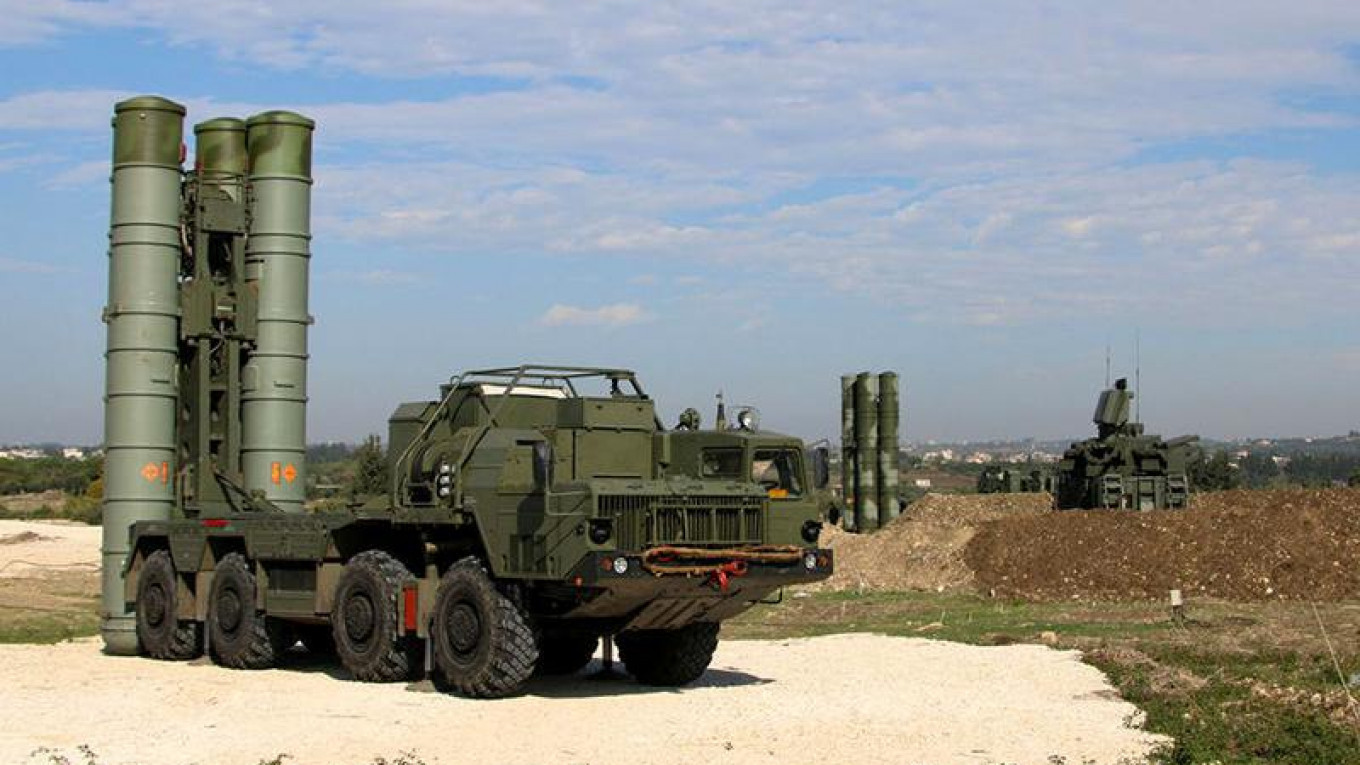
Delivery of a second batch of Russian S-400 missile defense systems to Turkey may be delayed beyond a planned 2020 timeline by talks on technology sharing and joint production, the head of Turkey’s Defence Industry Directorate said on Monday.
NATO allies Turkey and the United States have been at loggerheads over the purchase of the S-400 system, which Washington says is not compatible with NATO defenses and poses a threat to its Lockheed Martin F-35 fighter jets.
Despite Washington’s warnings and threats of U.S. sanctions, Turkey started taking delivery of the first S-400 batch in July. In response, Washington has removed Turkey from the F-35 programme, in which Ankara was a manufacturer and buyer.
Washington still hopes to persuade its ally to “walk away” from the Russian systems.
“We are planning a timeline for next year. As opposed to the first (batch), there is joint production and technology transfer here. It is beyond the ‘let’s buy it quickly and install it’ of the first system,” Ismail Demir told broadcaster NTV.
“The joint production concept may move the timeline. We have some sensitivities regarding some of the production being here. Technical work continues,” he said.
Despite the threat of U.S. sanctions over Ankara’s move to buy the Russian systems, Turkey has indicated it could procure Russian fighter jets if the United States refuses to deliver the F-35 jets it has purchased.
On Monday, Demir said Russia had offered to sell Turkey its Su-35 fighter jets.
“There is an offer and we are evaluating it. There cannot be such a thing as ‘we’re buying tomorrow’ in such matters. The offer’s financial and strategic aspects will be examined, there cannot be an immediate decision,” Demir said.
“It would not be right to say ‘the F-35 era is closed, the Su-35 era is beginning’, but we will evaluate the offer,” he said.
Ties between Ankara and Washington have been strained over issues such as Turkey’s offensive into northeastern Syria. Turkey has also been outraged over a decision by the U.S. House of Representatives to support sanctions on Ankara over its incursion and to recognize the mass killings of Armenians by the Ottoman Empire as “genocide”.
Despite this, Demir said Turkey was still open to offers by the United States to buy U.S. Patriot missile defense systems as long as they met Ankara’s conditions.
